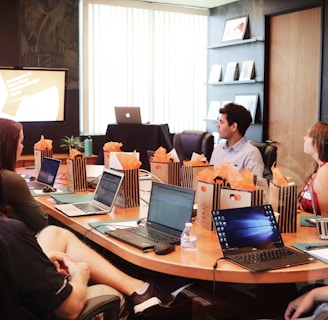Beyond the Code: The Hidden Power of Soft Skills in Software Development
The beautiful thing about soft skills is that they develop over time. Five years ago, my heart would race and my hands would shake when presenting. Today, I can explain a technical concept to a conference room of 200 people..
Ali Aktas
5/22/20253 min read


Last week, our team’s most brilliant developer had their solution rejected in a meeting. Technically, it was flawless — it eliminated performance issues and the code was elegantly written. Yet the project manager, client representative, and UX team all pushed back.
Why? No one understood them.
During their presentation, they delivered a monologue filled with technical jargon without making eye contact, responded defensively to questions, and failed to explain how their proposal aligned with business objectives.
This scenario, which I’ve witnessed countless times in my decade-long career, highlights a fundamental truth: Technical skills get you a seat at the table, but soft skills keep you there.
Software Development Isn’t Just About Software
Here’s a reality rarely taught in universities or bootcamps: software development isn’t primarily about computers — it’s about people. You might write the most complex algorithms and design the most efficient data structures, but if you can’t communicate your ideas to others, collaborate with teammates, or understand user needs, your perfect code won’t solve any real problems.
A friend in Silicon Valley puts it this way: “Actual coding takes up maybe 40% of my development time. The other 60% is effectively communicating with others.”
The Soft Skills That Actually Matter
Throughout my career, I’ve observed that certain soft skills are particularly critical for software developers:
1. Active Listening and Question-Asking
When a stakeholder says, “Let’s add a button here,” they’re usually actually saying, “Let’s make this function easier for users to find.” A good developer says “Okay” and adds the button. A great developer asks, “What’s the purpose of adding this button? What problem is the user trying to solve?”
In one of my projects, a client requested “faster search functionality.” Instead of jumping straight into algorithm optimization, I asked deeper questions and discovered the real issue wasn’t search speed but that users had to apply too many filters to find what they were looking for. As a result, we developed AI-powered automatic suggestions that reduced the need for searching altogether. Customer satisfaction increased by 80%.
2. Non-Technical Communication
As a senior developer, the skill I’m most proud of is explaining complex technical concepts to non-technical stakeholders. This isn’t just about reducing jargon — it’s about thinking from the perspective of different stakeholders.
My practical technique: Prepare every explanation at three different levels:
A 30-second summary for executives (focused on business value)
A 2-minute explanation for project managers (emphasizing time and resource implications)
Detailed technical justifications for other developers
This approach positioned me as a “cross-departmental communication bridge” in my last two companies and accelerated my career.
3. Empathetic Problem-Solving
Software development is fundamentally about solving problems, but the best solutions go beyond technical excellence. Understanding the challenges real users face and being able to think from their perspective is invaluable.
A recent example: My team was redesigning the authentication process for a mobile application. Technically, the most secure solution was complex password requirements with multi-factor authentication. However, user research showed our target audience was less technically savvy and often in regions with low bandwidth. We spent days brainstorming to develop a user-friendly approach without compromising security, eventually designing a hybrid system offering biometric verification with a simple PIN combination as a backup.
4. Receiving Critical Feedback
Your code is not you. Developers who can’t make this distinction often find their careers stagnating.
Being open to criticism means being able to say, “Can I ask some questions to better understand your perspective?” rather than becoming defensive. From my experience, my best ideas have often emerged when someone had the courage to question my approach.
How to Develop These Skills
These aren’t innate talents — they’re developable skills:
Take an active role in technical meetings: You’re there not just to code, but to communicate.
Mentor others: Guiding junior developers strengthens your explanation abilities.
Participate in user testing: Observing real users interact with your product builds empathy.
Learn the business side: Understanding how your company makes money, who its users are, and market dynamics broadens your perspective.
Experience different roles: Temporarily stepping into product owner, designer, or customer support roles enriches your perspective.
Conclusion: A Journey That Progresses Over Time
The beautiful thing about soft skills is that they develop over time. Five years ago, my heart would race and my hands would shake when presenting. Today, I can explain a technical concept to a conference room of 200 people.
As you progress in the software world, invest in developing your human skills as much as deepening your technical knowledge. This is what will transform you from a “good” developer to an “indispensable” team member.
And remember, what’s truly impressive isn’t the invisible value that no one notices when your code works perfectly, but what everyone feels when your team functions seamlessly.